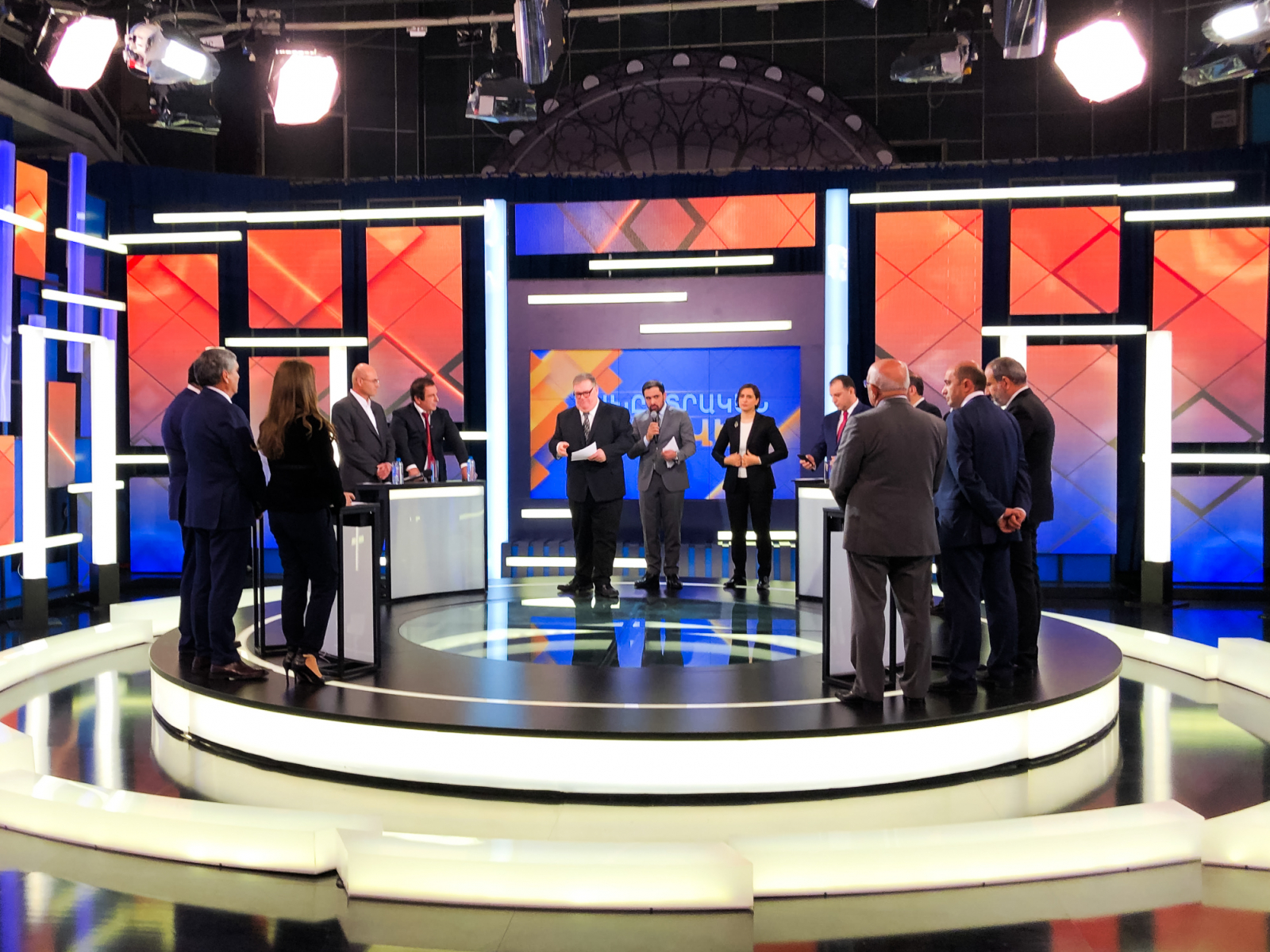
A set of handshakes – extended with civility and from equal footing – did more than punctuate the ending of a debate. They reflected a new political momentum in Armenia. On December 5, 2018, for the first time in independent Armenia’s history, the leaders of every political party and alliance participating in the December 9th parliamentary elections gathered on one stage, on live national television, to share with citizens their ideas and vision for the country’s future.
Less than a year ago, this diversity of parties vying for for citizens’ votes would have been difficult to imagine. But this was the year when mass demonstrations against corruption in Armenia led to the resignation of former president Serzh Sargsyan and the naming of demonstration leader and former journalist Nikol Pashinyan as prime minister. After a spirited yet respectful 3.5 hour debate, the symbolic handshake gave citizens hope that Armenia had entered into a new era of democratic political dialogue. Indeed, domestic and international observers assessed that the elections themselves were conducted competently and reflected the voters’ will.
Suren Sahakyan, leader of the Citizens Decision party, which was founded in November with a social democratic platform, commented on the positive feedback he received, "You know, the next day when I went out in the streets people started recognizing me and I delivered my message that I was standing for the revolution.” Nikol Pashinyan, the Prime Minister and leader of the My Step Alliance, a coalition of parties calling for democratic reform after the Revolution,, acknowledged the debate’s historical significance in his opening comments and posted on Facebook “I think that in the new electoral code a big pre-electoral debate should be fixed as a mandatory condition. Yesterday's debate succeeded. This is a new Armenia.”
Yesterday's debate succeeded. This is a new Armenia.
Nikol Pashinyan, Prime Minister
Political leaders were not the only ones to recognize the unprecedented nature of the debate. "We can consider the debate historical, taking into consideration the fact that the environment itself is historical" said Hakob Badalyan, an independent political analyst, who also noted its importance in developing a new political culture. Boris Navasaryan, the head of Yerevan's press center stated, "It was unprecedented in terms of organizing and equal opportunities. After this debate, we can say that the culture of political debates in our electoral processes has begun to evolve." And one citizen anticipating a more combative performance said, "I was expecting worse, but it worked out pretty well, I would say it was peaceful."
In collaboration with national TV broadcasters Public TV Armenia, and Radio Free Europe and Radio Liberty’s Armenian service, NDI supported a range of pre-election civic education programs, including one-on-one interviews with party leaders and thematic debates -- in addition to the culminating eleven-party debate on December 5th. With funding from the United States Agency for International Development (USAID), NDI shared best practices and provided consultations on format design, question development, moderator scripts, set design and staging, moderator and candidate preparations, and time management -- all aimed at meeting or exceeding international debate standards. A video of the debate is available here:
The challenge ahead is to ensure that this new era of dialogue becomes embedded in Armenian political culture. These debates mark an important first step in making progress toward that goal.


